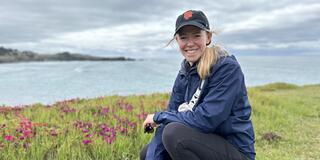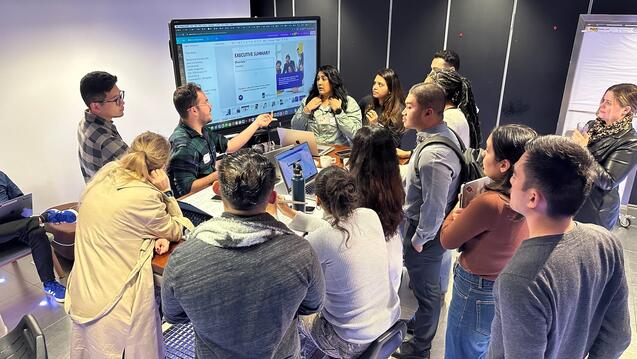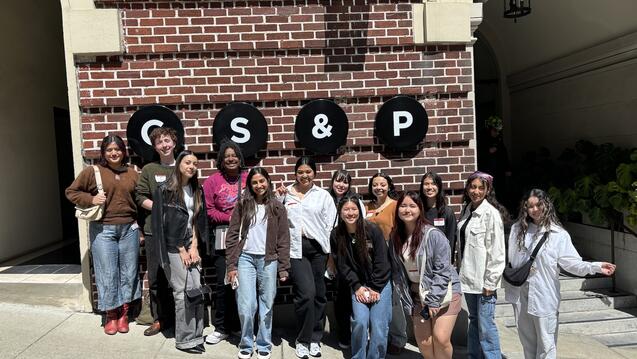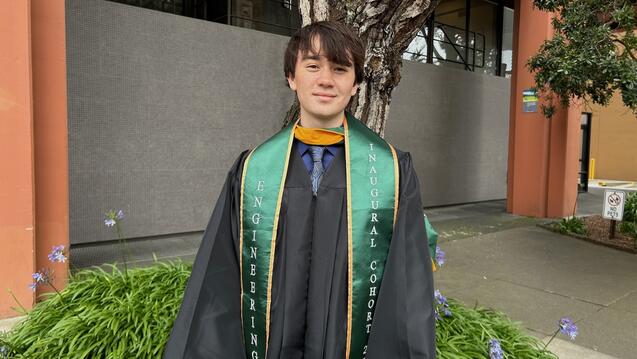Meet Your Professor: Henriette Cornet

The adjunct professor of engineering talks about sustainable development, autonomous vehicles, the future of cities, and the importance of fun.
Which courses do you teach?
This fall I’ll be teaching sustainable development in energy systems. It will cover energy systems in a wide sense — renewable energy technologies, energy standards for new construction, transportation, life-cycle assessments, environmental impact, energy policy.
What brings you to USF?
Professor Billy Riggs brought me to USF. He invited me to be the co-director of the Autonomous Vehicles and the City initiative at USF. It was easy to say yes. I love sustainable development, love autonomous vehicles, and love teaching. I think it’s important to keep in touch with students and hear their thoughts and concerns about the future and about sustainability. Also I love San Francisco. I’ve always wanted to live here and work here.
What do you bring to USF?
More than 10 years of experience in sustainable development, autonomous vehicles, material engineering, and user engagement. I’m an urban mobility consultant to companies and to public entities, improving transportation systems in Europe, in Asia, in the U.S. That’s my day job. I bring my work into the classroom. I also bring a European perspective. [Cornet is from France.]
What is that European perspective?
There is a huge car dependency in much of the U.S. In rural areas of Europe we also have car dependency, but in cities in Europe we’ve worked for many years to remove cars, and that is a perspective I’d like to bring more and more — how to improve the quality of life in cities with less car dependency.
What is ULTIMO?
ULTIMO is a consortium of academia, industry partners, and nonprofit entities in Europe working to advance autonomous transportation for public transit. I’m proud to be a part of their advisory board. At ULTIMO we aim to create the world’s first economically viable large-scale, on-demand, automated vehicle public transportation system. Imagine autonomous vehicles, like what Waymo is doing in San Francisco with the robot taxi, but fully integrated into cities as a part of a public transit system of buses, light rail, subways, trains — all coordinated, accessible, inclusive, and sustainable.
What would you like students to know about the engineering major at USF?
The engineering major gives you an engineering mindset: Whatever work you do, you know that your actions have an impact.
Your advice to incoming first-year students?
I think it’s important to have a good balance of classes — hard skills like physics and math and so on, but don’t forget to work on soft skills and have a good balance of sciences, languages, social sciences. And make sure you enjoy every day with your friends, because I think also university is about having fun and connecting with other students. And follow your passion. That’s what I did with the topic of environmental sciences as an undergraduate. Once I found that topic, everything in school became easier because I could just follow that passion, so I wish for students at USF to find something they really care about and put their heart into it, and the rest will follow.
Your favorite place in San Francisco?
I really like the area around Glen Park and Noe Valley. It’s a place where nature is so nicely integrated within the city, but still with good access to public transit. So that for me is a dream place to live.


